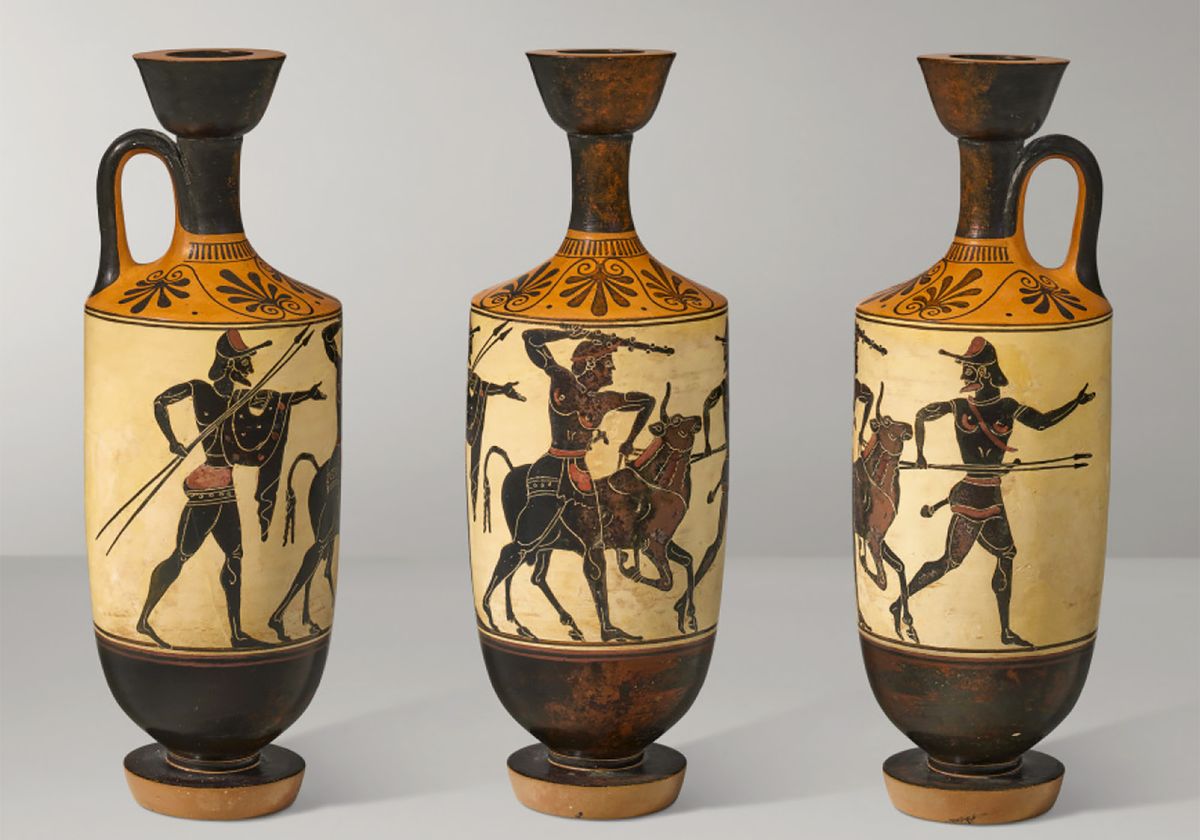Christie’s has denied claims by an archaeologist that the auction house knew that four Greek vases up for sale in a New York auction this week have links to Gianfranco Becchina, an Italian dealer who was convicted of art trafficking in 2011. Christie's withdrew the lots after the allegations came to light.
Christos Tsirogiannis, who teaches at the University of Cambridge and has worked with Unesco, told The Guardian that four vases scheduled to be auctioned on Tuesday (9 April) had links to Becchina, one of the most prolific traffickers of Italian antiquities and artefacts. The four vases were collectively estimated by Christie’s to fetch between $50,000 and $71,000.
Tsirogiannis told The Guardian that three of the vases had previously been consigned to the auction house by Becchina under a false name for a 1979 auction in Geneva, a sale mentioned in the Christie’s catalogue. Tsirogiannis has raised alarms about objects with disputed provenances at auction houses, museums and in private collections for nearly two decades. Paolo Giorgio Ferri, the late Italian public prosecutor who used the courts to repatriate tens of thousands of artefacts, even allowed Tsirogiannis access to archival materials seized during police raids on Becchina and other traffickers.
It was in Becchina’s seized archive that Tsirogiannis told The Guardian he found documents relating to that 1979 Christie’s sale that indicate Becchina was the consignor of the three vases under a fake name. He says he found a letter from Christie’s dated from 1981, informing Becchina that it was reimbursing him for lost antiquities relating to the 1979 sale, according to The Guardian. The lot in question was listed under a different name, Tsirogiannis says, which indicates Christie’s knew the real owner and consignor was Becchina.
“They deliberately exclude the connection of a trafficker in these three examples, although they’ve known about that connection for 45 years,” Tsirogiannis told The Guardian. “When a problem arose related to this auction, Christie’s contacted Becchina directly, which shows who the real owner is.”
The three vases, all of which date to the 6th century BCE, are an attic cup adorned with images of warriors with a $15,000 to $20,000 estimate, the lid of a lekanis bowl with sphinx figures expected to sell for between $8,000 and $12,000 and a hydra water pot featuring the god Dionysus with a drinking horn with an estimate of $7,000 to $9,000.
A fourth vase, a lekythos oil jar from about 500BCE to 490BCE featuring the image of Theseus, the mythical founder of Athens, was estimated by Christie’s to sell for $20,000 to $30,000 this week. Tsirogiannis told The Guardian that Bettina’s archives seized by police contain images of the vase with apparent damages, including a missing spout and rim. Images from Christie’s catalogue showed the vase “in perfect condition” with no condition report included, Tsirogiannis told The Guardian.
A Christie’s spokesperson denied Tsirogiannis’s allegations that the auction house knowingly put objects with connections to Becchina on the market.
“Any suggestion that Christie’s knew these objects originated with Gianfranco Becchina is categorically false. When we were made aware that there could be documentation evidencing such a connection, we withdrew the works from sale for further research and will research this together with the Italian authorities,” the spokesperson said in an email statement to The Art Newspaper.
There have been calls over the years to make the seized archives of convicted dealers like Becchina more accessible for ease of provenance research. In 2015, the Association of Art Museum Directors released a statement saying institutions are often placed in a “Catch 22” situation: “To be blamed by Italy, the press and others for owning objects with provenance issues, while simultaneously denied the ability to confirm whether those objects passed through the hands of these dealers.”


